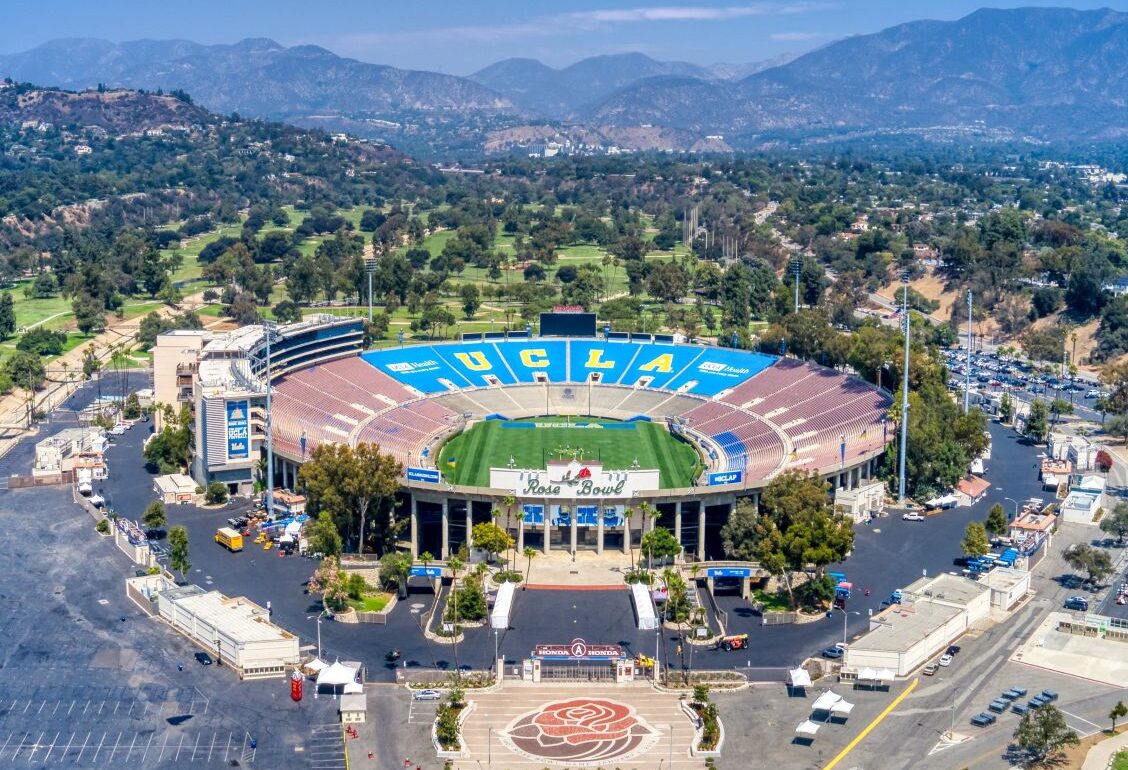



The Big Ten Conference is undergoing a massive transformation. UC Investments is attempting to acquire a 10% stake in the B1G’s for-profit entity, Ten Enterprises, for $2.4 billion. While the money is significant for each program, it could change fortunes for some struggling ones at the bottom tier of the conference, especially UCLA. But there stand in-state USC and Michigan, who are not letting the deal pass.
Watch What’s Trending Now!
The proposed Big Ten deal will see a payout of $190 million to programs such as Michigan, Ohio State, and Penn State; $155 million to USC and Oregon; and $110 million to the remaining programs in a tier-based system. The opposition from USC and Michigan is mainly due to their rejection of the grant-of-rights structure, which would extend for 20 years.
Without approval from both programs, the agreement cannot move forward, as it requires a unanimous vote. For UCLA AD Martin Jarmond, this blockage would be a major setback, since the Bruins need the revenue from the deal to trigger the $80 million termination of their Rose Bowl lease.

Imago
UCLA AD Martin Jarmond believes the deal with SoFi Stadium will profit the program.
After 40 years of calling the Rose Bowl home, the Bruins are now pursuing a deal with SoFi Stadium to host their home games. The reasoning is straightforward. SoFi Stadium offers 10,000 more premium seats than the Rose Bowl and is significantly closer to UCLA’s campus. Meanwhile, the current Rose Bowl agreement is restrictive; all earnings from premium seating and concessions are allocated directly to the Rose Bowl, rather than to UCLA.
The UCLA athletic department has been losing more than $200 million over the past six years. This is primarily because UCLA has Olympic sports programs, which are costly to operate. They have attempted to balance the budget by hiring coaches willing to accept pay cuts, but the strategy hasn’t worked out as they had hoped.
So, shifting to SoFi Stadium appears to be the most viable financial solution for the UCLA administration. If they relocate their homes to SoFi Stadium, projections show UCLA could generate an additional $15 million to $25 million annually. To make that move possible, UCLA needs the funds from the Big Ten deal to cover the $80 million buyout. However, USC is not the only obstacle in UCLA’s way, as complications in the contract between UCLA and the Rose Bowl make the move difficult, further tightening the financial pressure on the Bruins.
Inside the contract implications of UCLA with the Rose Bowl
It will not be an easy negotiation for UCLA with the Rose Bowl. This stems from the fact that the agreement between the two parties has no buyout fee mentioned and prohibits UCLA from discussing a potential move with other parties, while stating that “monetary damages would be inadequate” if they attempted to, as per the contract signed with the City of Pasadena and the Rose Operating Company in 2010.
When the contract was signed, it was agreed that UCLA would not contact any other parties and would play its home games until 2043, in exchange for the agreement for the Rose Bowl to fund nearly $20 million for stadium renovations. This sparked a legal battle between the two sides, as UCLA had been in contact with SoFi Stadium for months.
The Rose Bowl responded by requesting a temporary restraining order against the program. While the Rose Bowl ultimately lost that motion, it doesn’t mean UCLA is free to leave Pasadena just yet. The court favors the venue only if a team is immediately seeking to terminate the agreement. Since UCLA and the Rose Bowl still have time to resolve the deal, the judge ruled that UCLA will continue playing its home games at the stadium until an agreement is reached, and no temporary restraining order is required.





